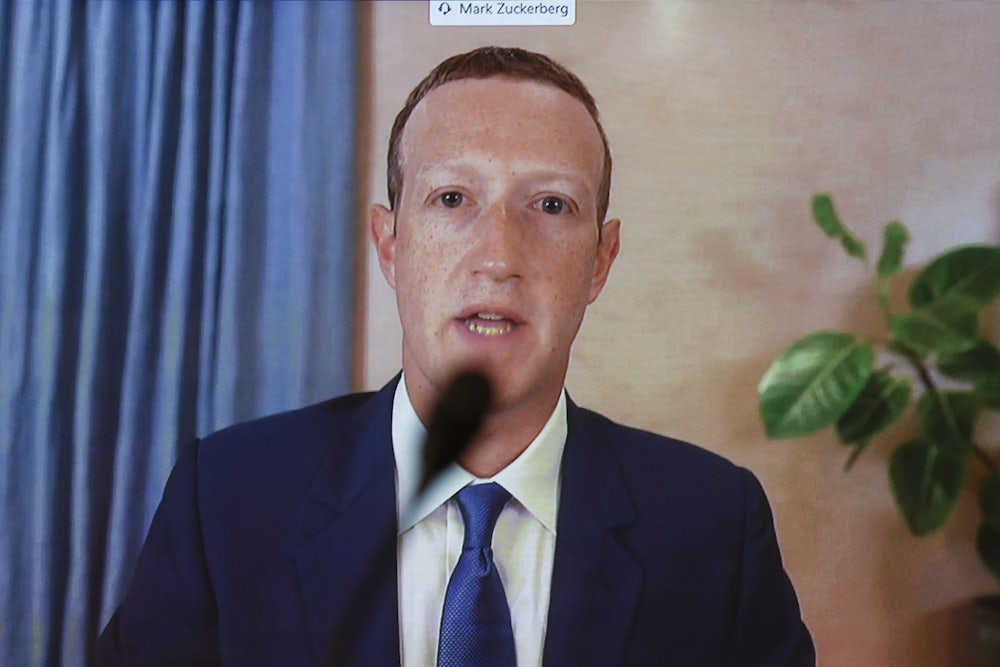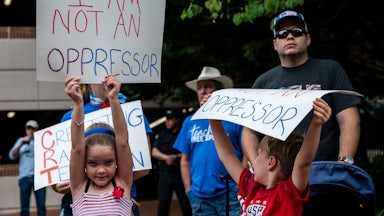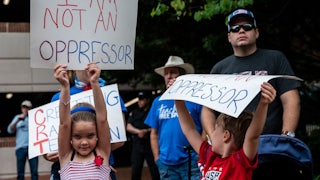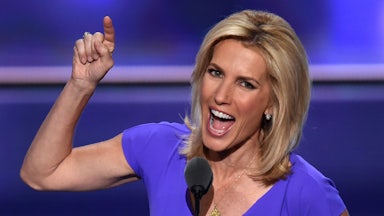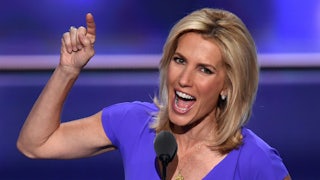Last week, President Joe Biden issued an executive order to create what the White House described as a “whole-of-government” strategy to bolster economic competitiveness and reverse a decades-long trend of consolidating corporate power. “Capitalism without competition isn’t capitalism,” he declared at the signing ceremony. “It’s exploitation.” Biden’s order, among many other things, “calls on the leading antitrust agencies, the Department of Justice (DOJ) and Federal Trade Commission (FTC), to enforce the antitrust laws vigorously,” the White House said in a fact sheet.
Soon thereafter, DOJ’s Antitrust Division and the FTC issued a brief joint statement welcoming the order’s call to review guidelines for scrutinizing mergers, noting that they “deserve a hard look to determine whether they are overly permissive.” Representing the FTC was Lina Khan, a sharp critic of monopolies who received an unusual show of bipartisan support when she was confirmed by the Senate this spring. Representing the Justice Department was Richard Powers, a career DOJ official who runs the department’s antitrust division in an acting capacity. That division’s top job, all but certain to be a hub of activity in the coming years, is officially vacant because Biden hasn’t nominated anyone to fill it.
It was the clearest summation of an ongoing Biden administration mystery. The president campaigned for tougher antitrust enforcement last year, both against the internet behemoths of Silicon Valley and elsewhere in the American economy. His policy strategy reflects a broad-spectrum approach to chipping away at anti-competitive practices, ranging from obvious ones like highly concentrated markets to more subtle threats like noncompete agreements. So why hasn’t the White House named an antitrust chief at DOJ who will help lead some of these fights?
In other antitrust-related positions throughout the federal government, the Biden administration has carved out a more hawkish path on antitrust enforcement than most of its recent predecessors. The White House announced in March that Tim Wu, a Columbia University law professor and a critic of the influence wielded by large tech companies, would join the National Economic Council. In a 2018 book, Wu compared the power of Facebook, Google, and other Silicon Valley giants to that wielded by monopolies like Standard Oil and U.S. Steel in the late nineteenth century, warning of similarly dire consequences for economic inequality and American democracy if they were allowed to retain their power.
An even more significant appointment came later in March: the nomination of Khan to the FTC, which was followed in June by her formal elevation to the commission’s chairmanship. The FTC, which emerged from Progressive era campaigns to rein in the monopolies of the Gilded Age, enforces federal antitrust laws alongside the Justice Department. It also has a wide range of consumer protection responsibilities. That makes it a highly consequential perch for Khan, who is something of an antitrust wunderkind.
As a 27-year-old Yale law student, Khan published a highly influential 2017 article in The Yale Law Journal that dissected the rise and effects of Amazon’s anti-competitive tactics. The prevailing legal orthodoxy on antitrust law for the last four decades focused on low prices and short-term consumer interests over the overall health of markets—a philosophy that Amazon then ruthlessly exploited to build its sprawling empire. “It is as if Bezos charted the company’s growth by first drawing a map of antitrust laws, and then devising routes to smoothly bypass them,” Khan wrote. “With its missionary zeal for consumers, Amazon has marched toward monopoly by singing the tune of contemporary antitrust.”
Five or 10 years earlier, Khan and Wu would have been unlikely choices for their current positions. But their rise coincides with a major bipartisan shift in thinking on antitrust law in general and Silicon Valley in particular. Democrats, who drifted away from their anti-monopolist roots in the 1970s and 1980s, are increasingly alarmed about the social and economic consequences of Big Tech’s unconstrained power. Republicans, including former President Donald Trump, are also spurning their party’s free-market orthodoxy to counter what they see as a wave of censorship from internet giants like Facebook and Google.
The result is a tide of litigation against Silicon Valley giants that aims to chip away at—or even break up—their online empires. The Justice Department sued Google last October to challenge what it described as a monopoly in search-engine advertising. Both Google and Apple are facing lawsuits over their app store policies, amid allegations that they use them to stifle competition by rivals. Facebook temporarily beat back an antitrust lawsuit from the FTC and more than 40 states last month, prompting its market capitalization to rise above $1 trillion for the first time.
All of this makes the absence of a new antitrust division chief at DOJ all the more conspicuous. The White House has already announced its choices to lead almost every other Justice Department division except the tax division. Biden has had no shortage of crises to deal with since entering office in January, of course. But as Politico noted earlier this month, the president has now taken longer to announce a new Antitrust Division chief than any of his predecessors in the last 40 years. And the absence is glaring considering the administration’s hawkish moves on antitrust on other fronts.
So what’s holding up a nomination? A few factors appear to be at play. White House Press Secretary Jen Psaki told reporters earlier this month that the job is “certainly a position the president is eager to fill,” while also declining to lay out a timetable for announcing a new DOJ antitrust chief. “As with any important position in government, he wants to have the right person in place,” Psaki said during a press briefing. Wu, speaking to Politico earlier this week, said that the White House was “not trying to play favorites” between DOJ and the FTC on antitrust enforcement, when asked about the vacancy.
One issue is satisfying various parts of the Democratic coalition. In January, The Intercept and The American Prospect reported that Attorney General Merrick Garland had backed Susan Davies, who previously served in DOJ during the Clinton administration, to head the division. Those reports raised alarms among progressives due to her previous work as a lawyer for Facebook. (Garland later publicly stated that Davies would not get the nomination.) Renata Hesse, an Obama DOJ veteran and another reported contender for the job, also drew flak from the left for her work on behalf of Google and for helping Amazon acquire Whole Foods in 2017.
One potential nominee favored by progressives is Jonathan Kanter, a former federal prosecutor who now runs his own law firm that focuses on antitrust enforcement. But those who work on the other side of the antitrust equation could also bring their own set of complications. White House ethics officials reportedly raised red flags about his private sector work on the subject. Kanter has previously represented clients who challenged Google’s power, raising concerns about whether he could participate in the division’s high-profile lawsuit against the company’s search-engine monopoly.
Concerns about conflicts of interest are far from hypothetical. Both Amazon and Facebook, for instance, have formally asked Khan to recuse herself from their respective cases in the last few weeks. “Chair Khan has made numerous and highly detailed public pronouncements regarding Amazon, including on market definition, specific conduct and theories of harm, and the purpose, effects, and legality of such conduct,” Amazon said in a filing in June. “Indeed, she has on numerous occasions argued that Amazon is guilty of antitrust violations and should be broken up.” Facebook, using nearly identical language in its own filing this week, argued that Khan “built her career, in large part, by singling out Facebook as a professed antitrust violator.”
If Khan doesn’t recuse herself, those companies argue they could later challenge enforcement actions in which she took part on due-process grounds. It’s unclear whether those challenges would ultimately prevail, but they underscore the high-stakes questions that surround vetting nominees for antitrust positions. And while DOJ officials work under different conflict of interest standards than FTC members, it could be politically and ethically tricky for Biden to name an antitrust division chief who previously worked on cases for or against the heavyweight giants of Big Tech.
The final problem here is that there aren’t all that many qualified candidates for the job. If there were 100,000 antitrust lawyers in America, the Biden administration would probably have an easier time. But the coziness of the field makes it hard to find someone qualified enough for DOJ’s top antitrust role who hasn’t either weighed in on antitrust cases involving tech giants or played some role in them—a point that Garland acknowledged in his own confirmation hearing in February. “Unfortunately or fortunately, a lot of the best antitrust lawyers in the country have some involvement in one way or another in some part of high tech,” he told senators, “and we can’t exclude every single good lawyer from being able to be in that division.”
The irony is hard to miss: Silicon Valley’s influence is now so vast that it’s getting hard to find someone who can actually help rein it in.
